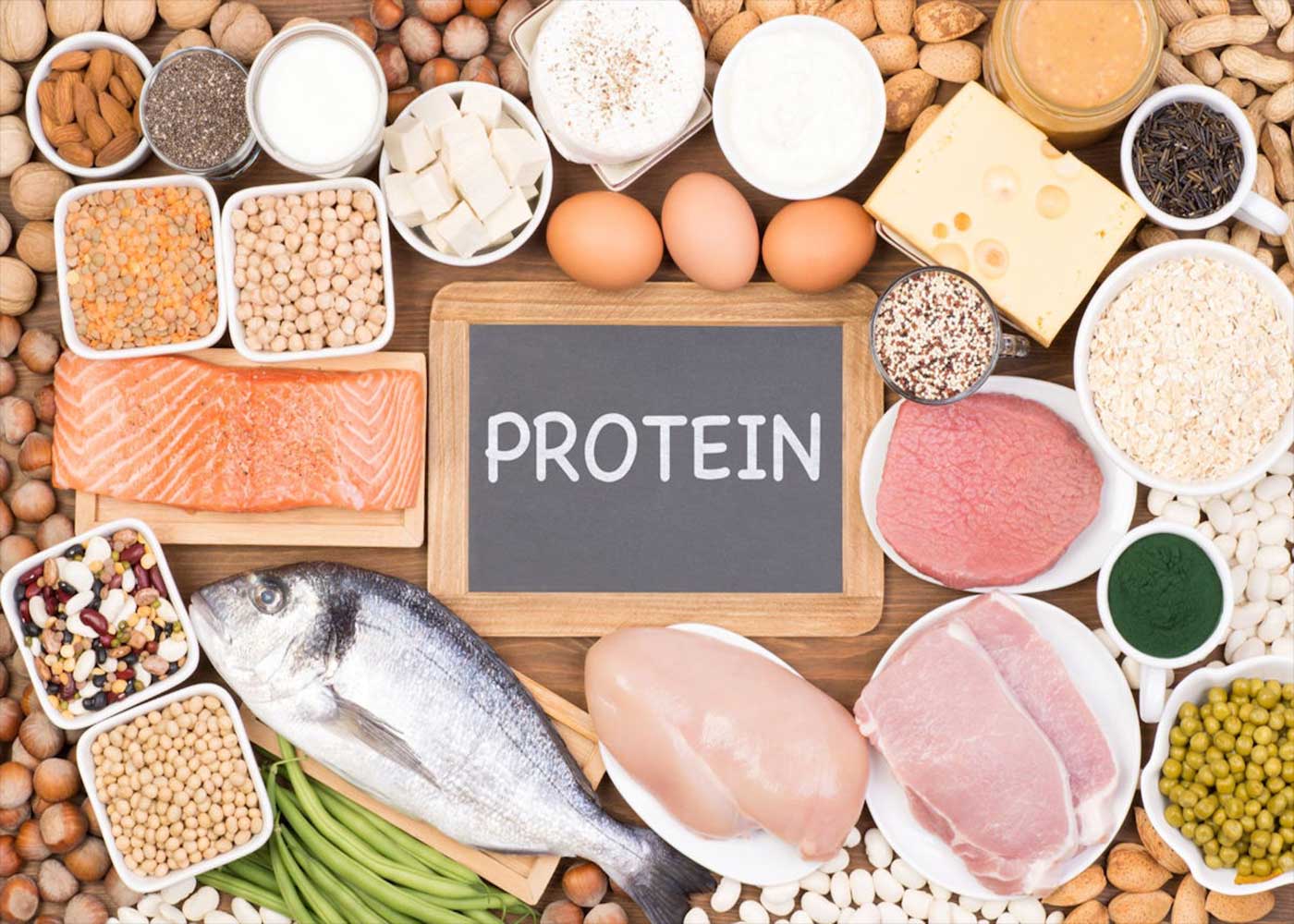Muscle mass gain is a common objective among many, it could
be a sportsman, a gym goer, or anybody, who wishes to improve their muscle
stiffness. But one of the most frequently asked questions is, ‘So how many
calories should I consume to gain muscles?” Unfortunately, there is no simple
answer to this question – the focus should be made instead on the way calories,
nutrients, and physical activity work together to help you put together a muscle gain
meal plan that is right for you.
Understanding Caloric Needs for Muscle Growth
For muscle gain, there must be a condition of calorie intake
over the calorie burnt, sometimes referred to as a surplus. But, the right
number of calories is not like the quantity that is most important in each meal
is to eat the most. It’s a process of feeding your muscles with the right
nutrients for growth and ensuring that the amount of fat that you are consuming
does not exceed the required limit.
Your caloric needs for muscle building depend on several factors,
including:
1. Basal Metabolic Rate (BMR): This is the number of
calories your body requires for vital activities in the body such as breathing,
maintaining body temperature etc but when lying down.
2. Activity Level: How you move around during a day or
exercise in terms of physical activity influences the calories used up.
3. Body Composition: Muscle is also heavier and burns more
energy as compared to fat thus a person blessed with proportional muscles will
need many calories.
4. Age and Gender: Concerning caloric demands, it should be
mentioned that people of young age certainly require more energy because their
metabolism is faster than that of older people. The male sex has been explained
to need more energy than the female sex because of more muscle tissue.
Calculating Your Caloric Needs
To calculate how many calories you need to build muscle, you
can follow these steps:
1. Determine Your BMR: Visit a fitness website’s page on
BMR, which allows you to input your age, gender, weight, and height to get a
ballpark figure for your passive caloric requirement.
2. Factor in Activity Level: Multiply your BMR by an
activity factor which is usually between 1.2 for those with a sedentary
lifestyle to 1.9 for those with an extremely active lifestyle. From this, you
will get your basal metabolic rate (BMR) and added to it physical activity
level will give you total daily energy expenditure (TDEE).
3. Add a Caloric Surplus: However, if you are looking to
pack on muscle, you must be eating more than your TDEE. A popular suggestion
often given is the amount of the calorie addition of 250- 500 calories per day.
This makes it possible to make gradual muscle buildup without having to soak up
fats in the process.
For instance, should your TDEE be 2,500 calories, you might
desire to take 2,750 to 3,000 calories each day for muscle mass.
Macronutrient Breakdown for Muscle Gain
If nothing else, people will eat fewer calories, which can
be a good thing for weight control, although it is still about where the calories
come from. Your muscle gain meal plan should include the right balance of
macronutrients:
1. Protein: Protein plays a role in the repair and build-up
of muscles in the human body. The time-tested protein recommendation is 1.2-2.2
grams of protein per kilogram of body weight. Thus, for a 70 kg man, this means
between 84 and 154 grams of protein per day.
2. Carbohydrates: Carbohydrates are an important source of
energy, particularly during energy-demanding exercises such as those that are
very intensive. These are used to replenish glycogen that supplies fuel for
workouts and to replenish glycogen in muscles. Complex carbohydrates should
contribute 45 – 65 % of the recommended daily per capita energy intake.
3. Fats: There are essential fats that are important in such
aspects as hormone synthesis, which contain testosterone hence important in
muscle mass development. Fats must provide between 20-35 per cent of the total
calorie intake.
Meal Timing and Frequency
On the question of muscle building, of course, it is crucial
what you eat, but the time when you do it is critical as well. Moderation of
calories and protein throughout the day further assists in bringing optimal
muscle protein synthesis.
1. Pre-Workout Nutrition: Eating a carb-protein meal about
2-3 hours before your workout can help give you the energy you need to work out
and help build muscle. A combination such as a chicken sandwich or oatmeal with
protein powder is the best.
2. Post-Workout Nutrition: Muscles are constantly being
rebuilt, and if you work out, your muscles are ready for it in the hours that
follow. You may be able to feel relief from the symptoms if you consume a meal
with proteins and carbohydrates every 30-60 minutes. This could be a protein
shake accompanied by a banana or a meal which might be a grilled chicken and
sweet potatoes.
3. Frequent Meals: Dividing food intake between meals 4-6
times or more will also help maintain high energy levels and deliver nutrients
to muscle groups at any given time.
Example Muscle Gain Meal Plan
Here’s an example of a daily meal plan that supports muscle gain, providing around 3,000 calories:
Breakfast:
- 3 scrambled eggs
- 2 slices of whole-grain toast
- 1 avocado
- 1 glass of orange juice
Mid-Morning Snack:
- Greek yogurt with mixed berries and honey
- A handful of almonds
Lunch:
- Grilled chicken breast
- Quinoa salad with vegetables and olive oil
- Steamed broccoli
Afternoon Snack:
Protein smoothie with banana, spinach, and almond butter
Dinner:
- Baked salmon
- Brown rice
- Roasted asparagus
Evening Snack:
Cottage cheese with pineapple chunks
Tracking Progress and Adjusting Calories
When it comes to gaining muscle, it is very helpful to take
measurements of how you are going along. If you are not getting the results
they expected you will have to increase or reduce your calorie intake.
1. Monitor Weight and Strength Gains: If you see no changes
in your weight or strength within the first few weeks it may be rather helpful
to up your calorie consumption slightly.
2. Adjust Macronutrients: If you’re getting too fat, you
should decrease carbs and fat, although protein can be increased or held at
least at the current level.
Exercise in Building Muscular Tissue
They both heavily contribute to muscle building nonetheless;
exercise is the trigger for triggering the whole process. To maximize muscle gain,
your workout routine should include:
1. Resistance Training: It is important to work with weight
or use resistance bands to develop muscles. This means more emphasis should be
put on compound exercises such as squatting, deadlifts, benching, and pulling
in general or Chin-ups etc.
2. Progressive Overload: To gain more muscle mass you have
to progressively add more weight, reps or the intensity of exercises performed.
3. Adequate Recovery: Organs and tissues must regain their
strength before exercising, thus, recovery time during your training sessions
and over the night should not be disregarded.
Common Mistakes to Avoid
There are many pitfalls anyone might stumble into when
they’re attempting to gain muscle. Here are a few mistakes to watch out for:
1. Overeating Junk Food: Even though there’s a need for a
caloric surplus one must prefer foods that are high in nutrients as opposed to
running to the nearest stop for a packet of chips. Consuming lots of the wrong
type of foods may cause you to put on fat rather than gain muscles.
2. Neglecting Protein: There is a problem with equating the
amount of carbohydrates and fats to protein, which will affect your muscle
gain. Each meal should be fortified using good protein.
Consuming food in a manner that is specific to muscle build
without regular exercise shall not be effective. It is very important to adhere
to a training schedule that is normal and well laid down.
Conclusion
Chronic muscle growth is an art of science involving
calories, macros, and training programs. It means that by knowing about the
precise caloric requirement of your body and developing a muscle-gain meal
plan, it becomes possible to promote muscle buildup without adding a great deal
of fat.
Statistical data reveals the peculiarity of such balance. A
study done in the American Journal of Clinical Nutrition reveals that both
resistance training and a high protein diet boost muscle mass more than if the
subject does either diet or training alone. Another published work in the
Journal of the International Society of Sports Nutrition showed that eating
equal portions of proteins in small frequency within the day favours muscle mass
gains more than taking bulky portions of the protein in one or two instances.
At any stage of your muscle-building process – whether
you’re a beginner or an experienced lifter – the best thing you can do is heed
your body’s signals, document your progress, and tweak your routine,
accordingly. Following the right path you will have set yourself on, you will
immerse into the muscle-building you desire and feel better than ever.






























